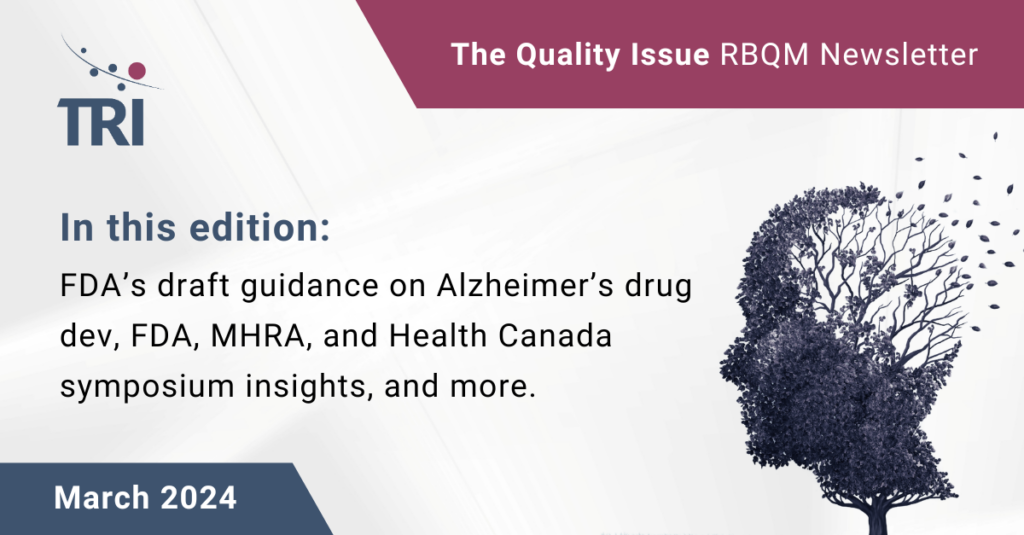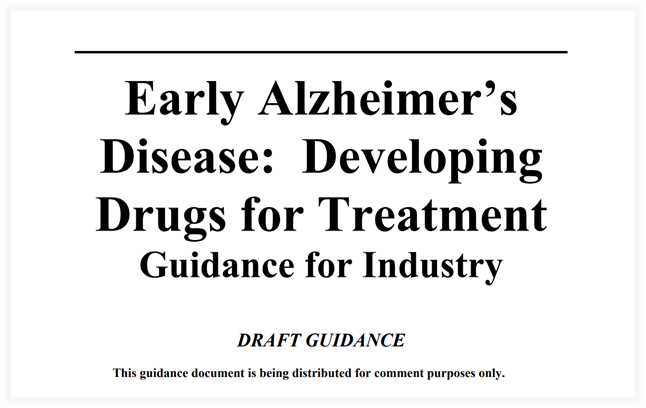The Quality Issue – March 2024

Welcome to the March edition of The Quality Issue, where we zero in on the latest in Good Clinical Practice (GCP) and RBQM news. Before we dive in, we’d like to extend a heartfelt thank you to everyone who has subscribed to our newsletter. Your engagement has been instrumental in shaping the content and direction of The Quality Issue. We’re grateful for your continued support and look forward to bringing you even more valuable insights in the future.
Let’s March on and dive into this month’s news.

FDA, Health Canada, and MHRA Good Clinical Practice and Pharmacovigilance Symposium
The “Good Clinical Practice and Pharmacovigilance Symposium,” hosted by the FDA, Health Canada, and MHRA on February 13-15, 2024, served as a platform for discussing advancements in clinical practice and drug safety. Key topics included the harmonization of Good Clinical Practice guidelines, the role of digital health technologies in clinical trials, and the impact of decentralized trials on regulatory practices. The symposium also emphasized the importance of international collaboration in pharmacovigilance and explored the future of regulatory inspections, particularly in the context of remote assessments.
If you missed the event, you can catch up on what you missed by watching the recordings:

FDA publishes Draft Guidance for Developing Drugs for the Treatment of Early Alzheimer’s Disease
The FDA’s new draft guidance, “Early Alzheimer’s Disease: Developing Drugs for Treatment,” is a call to action for those involved in Alzheimer’s research and drug development. This document provides critical insights for clinical development strategies targeting the early stages of Alzheimer’s disease, focusing on stages 1 through 3, before overt dementia sets in. Key highlights include:
- Diagnostic Criteria: Emphasizes the use of biological markers to ensure accurate enrollment of individuals with early Alzheimer’s disease in clinical trials.
- Outcome Measures: Discusses clinical endpoints, time-to-event analysis, and surrogate endpoints tailored for the early stages of Alzheimer’s, where clinical impairments might be minimal or absent.
- Stage-Specific Considerations: Offers detailed guidance on designing trials and selecting endpoints for various stages of early Alzheimer’s, from asymptomatic individuals to those with mild but detectable functional impairment.
The FDA encourages stakeholders to review this draft and provide feedback by October 6, 2024, to refine and enhance the recommendations. Your contributions are essential in shaping a future where early Alzheimer’s can be effectively treated or even prevented. To participate in this vital discussion and make your voice heard, please submit your comments via the FDA’s website, referencing the appropriate docket number.
Enhance Your GCP Risk Management with ZS's Exclusive Webinar
Dive into the future of Good Clinical Practice (GCP) with ZS’s own Jonathan Rowe, Principal, Clinical Development, leading a must-attend webinar: “GCP Risk-Based Approaches: What Good Looks Like Now.” Mark your calendars for March 26 at noon EDT for a 30-minute deep dive into the latest in GCP risk management.
Why You Should Attend:
- Discover the evolution of risk-based quality management in GCP.
- Learn the shift towards proactive risk management for better predictions.
- Gain actionable insights for a proactive GCP risk governance culture.
Join us and Jonathan Rowe for this enlightening session and transform your approach to GCP risk management. Save your spot!
Keep an eye out for the April edition of our newsletter. We have a significant announcement to make that we’re excited to share with you. Make sure you’re subscribed so you don’t miss out.
Thanks again for your support. See you next month!
